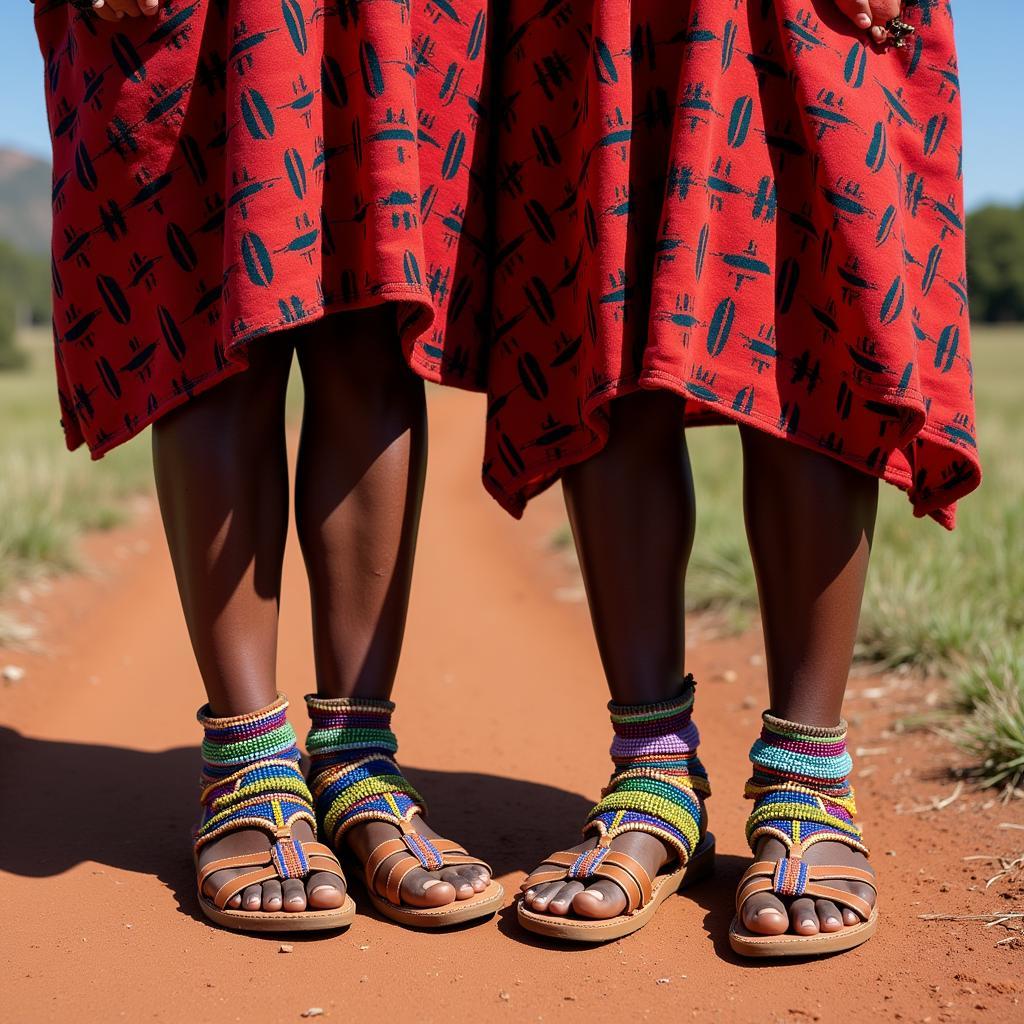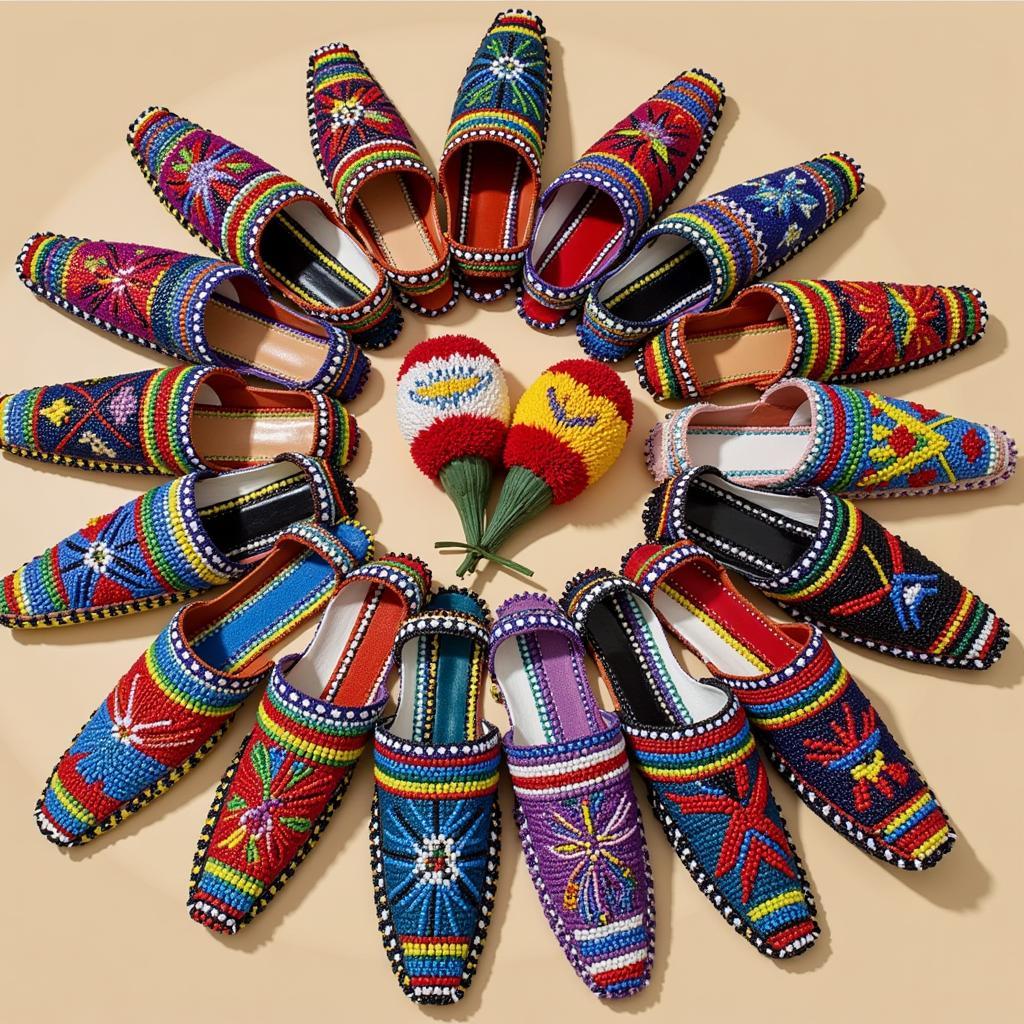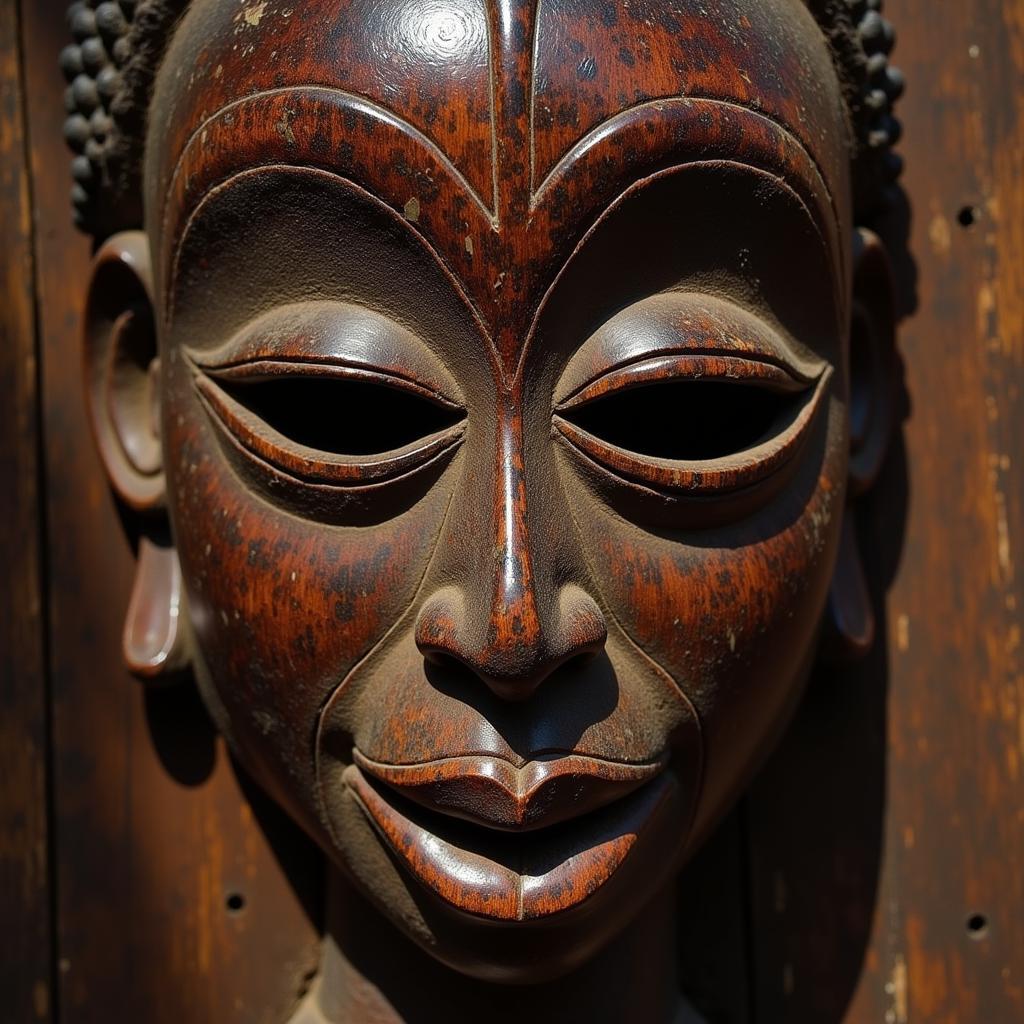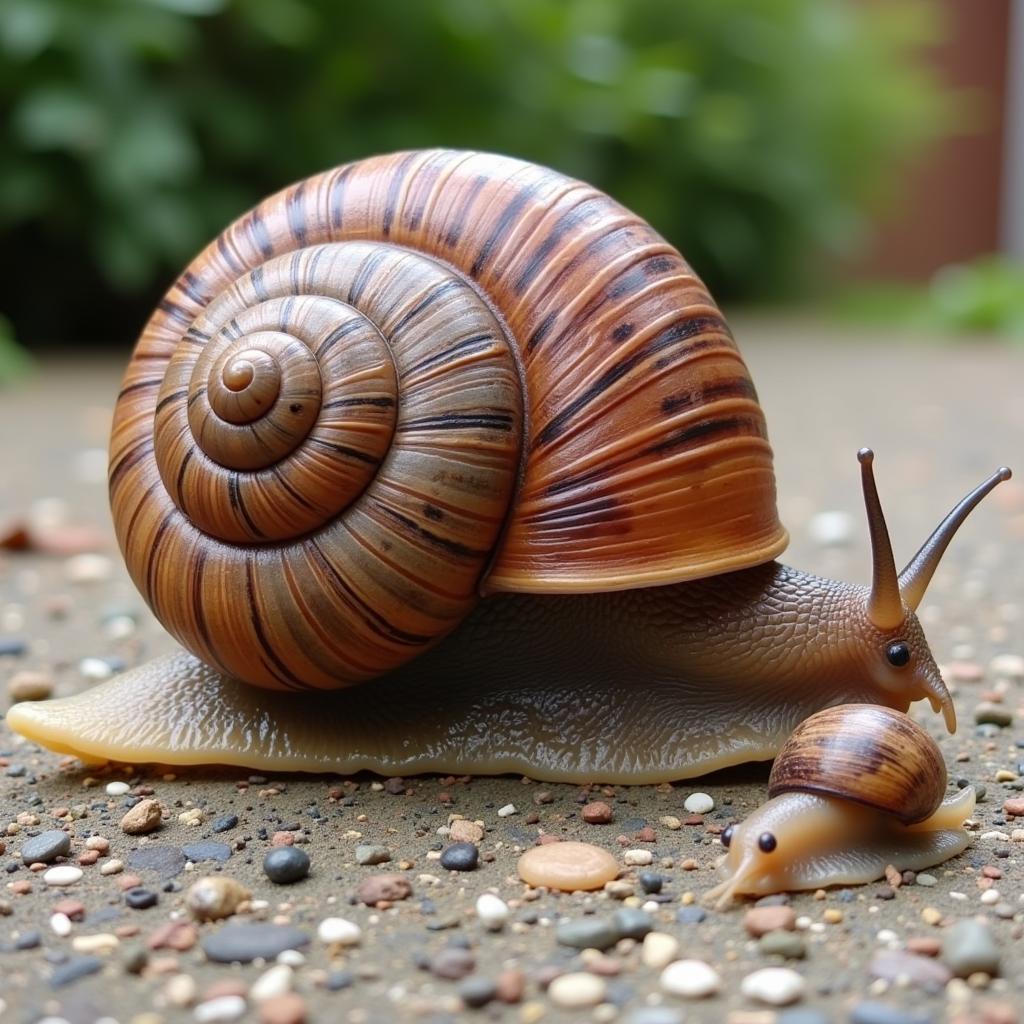Discovering the Art and Culture of African Beaded Sandals in Kenya
African beaded sandals in Kenya are more than just footwear; they’re a vibrant expression of cultural heritage, artistic skill, and personal style. From the bustling markets of Nairobi to the remote villages of Maasai Mara, these intricate creations tell stories of tradition, identity, and the rich tapestry of Kenyan life. Let’s delve into the captivating world of Kenyan beaded sandals and uncover the artistry, symbolism, and cultural significance they hold.
The Maasai, Samburu, and other tribes have been crafting these beautiful sandals for generations, passing down techniques and designs through families. Originally made from readily available materials like leather and natural fibers, the addition of colorful beads elevated these sandals from simple footwear to elaborate works of art. Today, you can find a stunning array of designs, from simple, everyday sandals to elaborate pieces reserved for special occasions. Want to add a touch of African flair to your wardrobe? These sandals are the perfect accessory to do just that! african inspired formal dresses.
The Significance of Colors and Patterns in Kenyan Beaded Sandals
Each bead and pattern woven into Kenyan beaded sandals carries symbolic meaning, reflecting the wearer’s tribe, status, or even personal beliefs. Red, often associated with bravery and warriors, might be prominent in Maasai sandals, while white, symbolizing purity and peace, could be featured in sandals worn for ceremonies. Intricate geometric patterns might represent ancestral stories or connections to the natural world.
What makes these sandals even more fascinating is the way their designs evolve. Contemporary artisans are constantly innovating, incorporating new colors, materials, and patterns while still honoring traditional techniques. This blend of old and new creates a dynamic art form that continues to captivate and inspire.
 Maasai Women Wearing Traditional Beaded Sandals
Maasai Women Wearing Traditional Beaded Sandals
Where to Find Authentic African Beaded Sandals in Kenya
Looking to purchase a pair of these unique sandals? Kenya offers a plethora of options, from bustling city markets to small craft shops in rural communities. Visiting a local market allows you to interact directly with the artisans, learn about their craft, and perhaps even customize your own pair. You’ll find a wide range of styles and prices, ensuring there’s a perfect pair for everyone. Remember, by purchasing directly from the artisans, you’re supporting their livelihoods and preserving this beautiful art form.
Are you looking for unique gifts? African gifts for him offer a unique selection with a cultural touch.
How to Care for Your Kenyan Beaded Sandals
These handcrafted sandals require specific care to maintain their beauty and longevity. Avoid exposing them to excessive moisture or direct sunlight, which can fade the colors or damage the leather. Clean them gently with a soft cloth and store them in a cool, dry place. With proper care, your Kenyan beaded sandals will remain a treasured piece of your wardrobe for years to come.
 Variety of Handmade Kenyan Beaded Sandals
Variety of Handmade Kenyan Beaded Sandals
Why Are Kenyan Beaded Sandals So Popular?
The popularity of Kenyan beaded sandals stems from their unique blend of artistry, cultural significance, and fashionable appeal. They’re a statement piece that adds a touch of exotic flair to any outfit, while also supporting local artisans and preserving a rich cultural tradition. Whether you’re a fashion enthusiast, a lover of handcrafted goods, or simply someone who appreciates the beauty of cultural expression, Kenyan beaded sandals offer a unique and meaningful connection to the heart of Africa. Looking for other African inspired clothing? Consider African inspired skirts.
“Kenyan beaded sandals represent more than just footwear; they are a tangible link to the rich cultural tapestry of Kenya,” says Dr. Anika Otieno, a renowned anthropologist specializing in East African cultures. “Each pair tells a story, connecting the wearer to generations of artisans and the traditions they uphold.”
Caring for Your Investment: Maintaining the Beauty of Your Beaded Sandals
Taking proper care of your Kenyan beaded sandals will ensure their longevity. Avoid wearing them in wet conditions and store them away from direct sunlight. “Proper care preserves not only the beauty of the sandals but also the cultural heritage they represent,” adds Mr. Joseph Mwangi, a skilled artisan from Nairobi.
Conclusion
African beaded sandals in Kenya are a beautiful testament to the country’s vibrant cultural heritage. They represent more than just footwear; they are a wearable art form, a symbol of tradition, and a connection to the heart of Kenya. By purchasing and cherishing these unique creations, you’re supporting local artisans and helping to preserve this rich cultural tradition.
FAQ
- What are Kenyan beaded sandals made of? Typically, leather, beads, and sometimes natural fibers.
- Where can I buy authentic Kenyan beaded sandals? Local markets, craft shops, and online stores specializing in fair trade goods.
- How much do Kenyan beaded sandals cost? Prices vary depending on the intricacy of the design and the materials used.
- How do I care for my beaded sandals? Avoid moisture and direct sunlight; clean gently with a soft cloth.
- What do the colors and patterns on the sandals symbolize? They often represent tribal affiliations, status, or personal beliefs.
- Are Kenyan beaded sandals comfortable to wear? Yes, they are generally comfortable, especially after they have been broken in.
- Can I find custom-made Kenyan beaded sandals? Yes, many artisans offer custom designs.
Looking for clothing with an African twist? Check out african clothing idnia. For other African inspired products, you can explore african alliance products.
Need more information about African culture or looking for more articles related to African fashion and accessories? Explore our website for other interesting reads.
When you need support, please contact us via Phone: +255768904061, Email: [email protected], or visit us at Mbarali DC Mawindi, Kangaga, Tanzania. We have a 24/7 customer service team.

